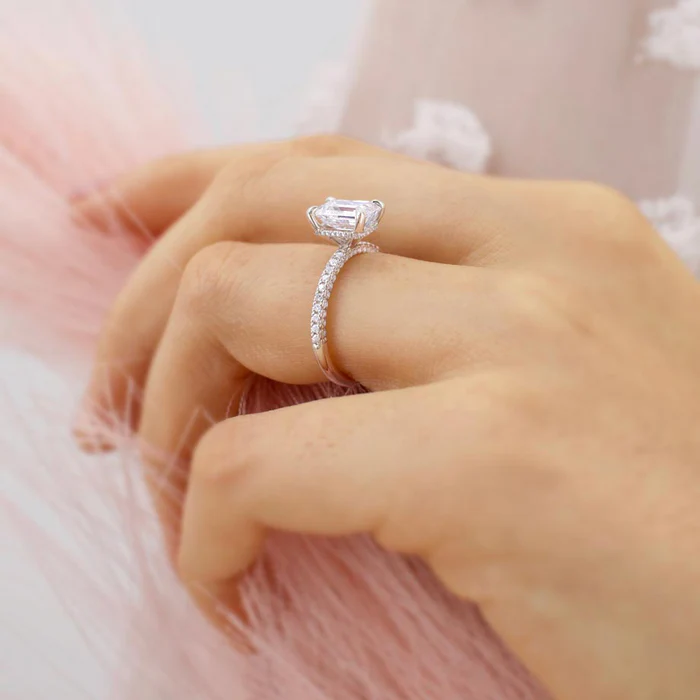Sustainability in Jewellery: UK’s Love Affair with Moissanite

In recent years, there has been a growing shift towards sustainability in the jewellery industry, with more people choosing eco-friendly and ethically sourced materials. This change is particularly noticeable in the UK, where the demand for sustainable alternatives to traditional diamonds is rising. One such alternative gaining popularity is moissanite, a gemstone that offers all the beauty and brilliance of diamonds but with a much smaller environmental footprint. For those seeking engagement rings Manchester or elsewhere in the UK, moissanite offers an ethical and sustainable option that is capturing the hearts of many.
Moissanite is a naturally occurring mineral, first discovered in 1893 by French chemist Henri Moissan, who later won the Nobel Prize in Chemistry. However, the gemstone as we know it today is created in labs. While diamonds are formed deep within the Earth over millions of years, moissanite can be produced in a controlled environment, significantly reducing the environmental impact associated with diamond mining. This method of production not only preserves the planet’s resources but also ensures that no human rights abuses are involved in the mining process.
In addition to its ethical advantages, moissanite is highly durable. With a hardness rating of 9.25 on the Mohs scale, it is second only to diamonds, making it an ideal choice for engagement rings and other fine jewellery. It also boasts remarkable brilliance, as it refracts light in a way that makes it sparkle more than diamonds. This has led to moissanite becoming increasingly sought-after for engagement rings, particularly in cities like Manchester, where many couples are eager to invest in beautiful yet sustainable options.
The appeal of moissanite goes beyond just its physical characteristics. For environmentally conscious consumers, the stone represents a more sustainable path forward in the jewellery industry. Traditional diamond mining can have significant environmental consequences, such as deforestation, water pollution, and habitat destruction. In contrast, the creation of moissanite in a lab setting allows for precise control over energy usage and waste, making it a far more sustainable choice overall.
Moreover, moissanite is significantly more affordable than diamonds. While the price of diamonds can vary greatly depending on size, clarity, and cut, moissanite tends to be much less expensive, offering consumers a chance to purchase larger stones or more intricate designs for the same price as smaller diamonds. This affordability factor makes moissanite a particularly attractive option for couples looking for engagement rings in Manchester, where the cost of living can be high.
The growing trend of choosing sustainable alternatives to diamonds is part of a broader shift in consumer behavior across industries. More and more people are prioritizing sustainability in their purchasing decisions, and the jewellery market is no exception. Moissanite has become a frontrunner in this movement, appealing to those who want to make a positive impact without compromising on quality or aesthetics.
For many consumers, purchasing a moissanite engagement ring or other jewellery piece isn’t just about saving money or reducing environmental impact—it’s about making a statement. By choosing a moissanite gemstone, they are declaring their commitment to both their partner and the planet. As the popularity of moissanite continues to grow, it is clear that the UK’s love affair with this sustainable gem is only just beginning.
In conclusion, the UK’s love affair with moissanite is more than just a passing trend—it’s part of a larger movement towards sustainability and ethical consumerism. With its brilliance, durability, and eco-friendly nature, moissanite is redefining what it means to purchase fine jewellery. For those in Manchester and beyond, choosing moissanite for an engagement ring is a beautiful way to say “I do” to both your partner and a more sustainable future.